
Take control of transmissions
A proven best-in-class product for the reduction of Newcastle disease transmission
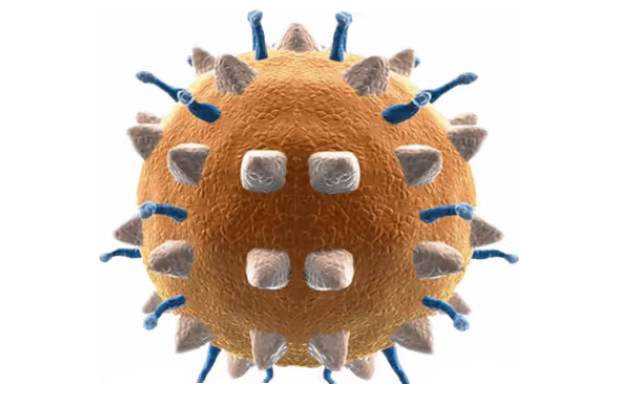
What is Vectormune® ND?
Vectormune® ND is a recombinant HVT vector vaccine, which uses turkey herpes virus (HVT) as a vector by inserting the Newcastle disease virus (NDV) fusion gene (F) into the HVT genome.
HVT Virus
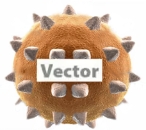
HVT FC 126
NDV Virus
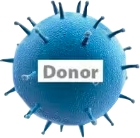
NDV D26
Promoter PEC
HVT Genome
Protein F gene
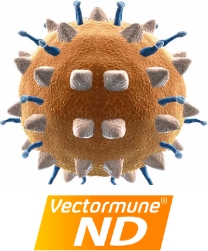
How it works ?
The patented insertion site and the promoter selected to ensure expression of the F gene are the key elements in the construction of this vaccine.
The HVT strain used to carry and express the ‘F’ gene has been known for decades as a very safe and stable virus, used worldwide to vaccinate chickens against Marek’s disease. The particular strain of Newcastle disease and the passage level selected for the construction of Vectormune® ND ensure active replication in chickens and high expression of the F gene, which explains why protection against Newcastle disease occurs so rapidly.
The ‘F’ (for ‘fusion’) protein is the epitope on the surface of the virus of Newcastle disease that enables it to attach to and enter target cells. It is both a key factor in the virulence of the virus and an essential protective antigen. It is easy to understand that if immunity is developed against the ‘F’ protein, the virus of Newcastle disease will find it much more difficult to infect and damage cells. This explains the high efficacy of Vectormune® ND.
Why Vectormune® ND?
The poultry sector is evolving very rapidly and its challenges have increased considerably over the years. For producers, efficiency, rather than a point of differentiation, has become a survival strategy.
Today, it is necessary to produce more with less in a difficult context. In addition, high disease pressure, high stocking densities on farms in densely populated areas, lack of skilled workers, pressure to reduce the use of antibiotics, among others, are daily challenges faced by all players in this industry.
Vectormune® ND is the best-in-class solution to the following problems when other Newcastle disease vaccines are not sufficient:
- Interference with maternally derived antibodies (MDA)
- Difficulties in administering the vaccine
- Side effects
- Virus circulation
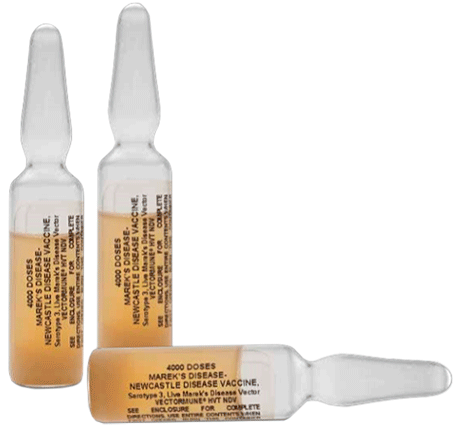
Performance of Vectormune® ND
Onset of immunity :
An immune response to Vectormune® ND (IgG, IgM and IgA type) can be detected in SPF chickens as early as 9-12 days after vaccination (Rauw et al., 2012).
The immune response to Vectormune® ND is composed of circulating antibodies and a local immune response. It is not only humoral but also cellular (Rauw et al., 2010). The antibody response to Vectormune® ND can be detected using the haemagglutination inhibition (HI) test or ND ‘F’ ELISA tests.
After vaccination on day one, in the presence of passive immunity, the antibody response can be clearly differentiated from controls at around 21 to 28 days of age. However, this detection is not possible with commercial ND ELISA kits (e.g. Idexx, Biochek). If no live vaccine is used, a simple serological method can be used to differentiate vaccinated animals from vaccinated and infected or simply infected animals (commonly known as the ‘DIVA procedure’).
Duration of immunity :
Duration of immunity is probably the most impressive feature of this vaccine.
Following a single injection of Vectormune® ND at day of hatch, layers are totally protected against clinical signs, mortality and drop in egg production until, at least, 72 weeks of age (Palya et al., 2012c). This cannot be compared to any existing Newcastle disease vaccination conventional program where a minimum of 2 to 4 killed and 5 to 8 live vaccinations would be necessary to achieve acceptable (but not comparable) level of protection.
Reduction of Shedding
A proven best-in-class product for the reduction of Newcastle disease transmission
Vectormune® ND is a strong tool to break the uncontrolled transmission of the virus of Newcastle disease among chickens in a house, in between houses in a farm, and ultimately among farms in a high densely populated poultry area. Hence, Vectormune® ND helps to prevent and control Newcastle Disease outbreaks in the poultry industry and protects performance. This is more proof of how Ceva Animal Health supports its customers in achieving their targets all around the world.
Vaccination strategy
Since protection with Vectormune® ND requires replication of the HVT vector and this generally takes some days, the first 3 weeks of life are gradually covered by Vectormune® ND.
For this reason, in Newcastle disease endemic countries, the vaccination strategy with Vectormune® ND requires ensuring early protection by the application of a live attenuated Newcastle disease vaccine by spray on Day One in the hatchery. In order to avoid damaging the trachea, which is detrimental to both growth and the integrity of the respiratory tract, it is strongly recommended to use a vaccine based on an apathogenic enterotropic the virus of Newcastle disease strain, like the Phy.LMV.42 NDV strain present in Cevac® Vitapest L (Newcastle disease only) or Cevac® Vitabron L (combination of Newcastle disease + Infectious Bronchitis).

In countries where Newcastle disease is only an epizootic risk, it is advisable to remove any live Newcastle disease vaccine from the program. The combination of a reliable Newcastle disease passive immunity together with Vectormune® ND induced active immunity will ensure a very significant level of protection. By removing the use of any live Newcastle disease vaccine in chicken flocks, this innovative approach helps to improve overall respiratory health, which could in turn result in less antibiotic medication and lower rates of airsacculitis at the processing plant.
Following several years of investigation with Vectormune® ND, we believe that this vaccine is more a revolution than a simple evolution.
Vectormune® ND has been changing the approach of Newcastle disease prevention in the field and is being considered as a strong tool for the long-term control of this serious poultry disease.
Spectrum of protection
Vectormune® ND offers a broad spectrum of efficacy
Perfect protection has been demonstrated against tests carried out with high doses of different strains of Newcastle disease, belonging to various genotypes, including genotype II (Texas GB strain, B1B1 strain), genotype IV (Herts 33 strain), genotype V (Mexican Chimalhuacan strain), and genotype VII (several isolates).
Administration of Vectormune® ND
Ceva’s ultimate goal is to immunise birds correctly. That’s why we have best-in-class vaccines and dedicated services to support our partners.
Since 2009, the C.H.I.C.K. (Ceva Hatchery Immunisation Control Keys) programme has been implemented in thousands of hatcheries around the world by our dedicated teams of technicians to check that vaccines are correctly stored, prepared and administered to birds.
Veterinary services are our strongest pillar for monitoring immunisation and understanding the dynamics on the ground.
Since 2010, we have been providing an end-to-end service solution with Linilog® (Liquid Nitrogen Logistics), which helps to maintain the integrity of the vaccines and the safety of those involved.
Hatchery
C.H.I.C.K. Program
Farms
Global Protection Service
Treatment
Veterinary Service
By offering maximum protection and reduced shedding with no side effects, the use of Vectormune® ND, combined with Ceva’s outstanding services, is a perfect combination offering a complete solution for the control of Newcastle disease, improving profits and peace of mind for the poultry industry.
Over the years, our customers have achieved very positive results with Vectormune® ND, confirming the superiority of Ceva’s vector vaccines. These results can be described and organised according to the phase of production where the improvements were observed
Improved control of vaccination and immunisation
Improving performance
Improving transformation
Contact us for more information
Contact formNewcastle disease
Newcastle disease is caused by a virus belonging to the Paramyxoviridae family, an avian paramyxovirus serotype 1 (APMV-1).
It affects wild birds and domestic poultry, and generally presents as a respiratory illness. The other predominant clinical symptoms usually are depression, nervous manifestations, diarrhoea and mortalities.
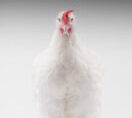
 POULTRY
POULTRY